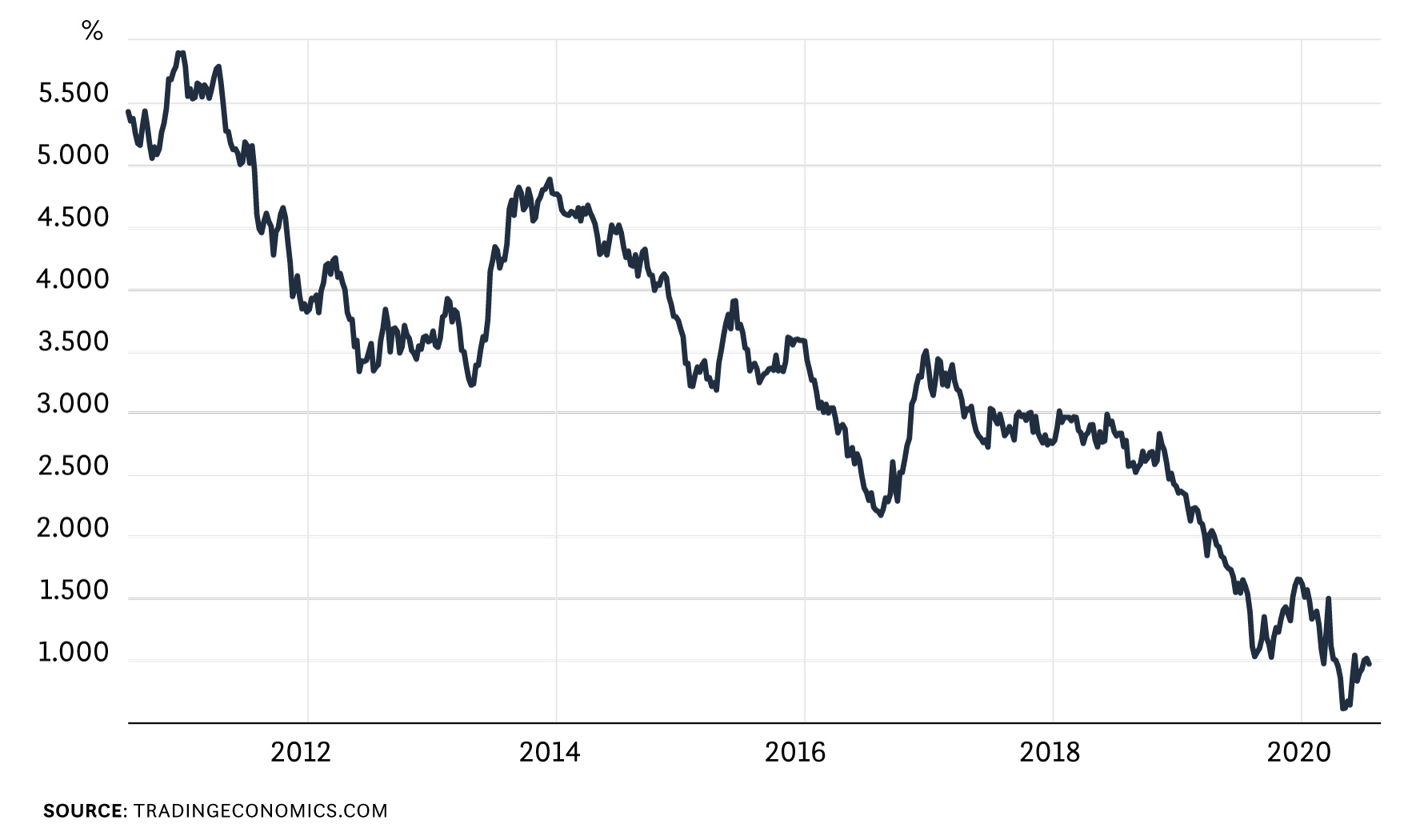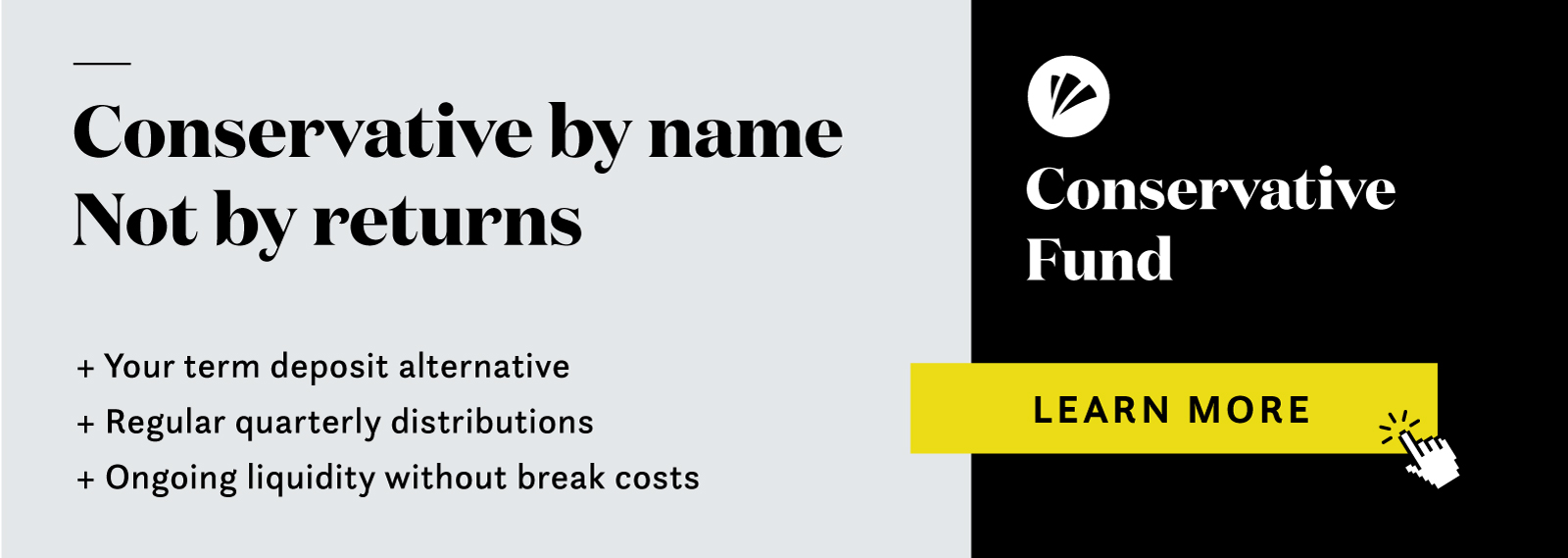
InvestNow News – 25th September – Pie Funds – How low can interest rates go?
Article written by Mike Taylor, Pie Funds – 23rd September 2020
Pie Funds CEO and Founder Mike Taylor sets the scene for interest rates and explores investment options offering a better return than term deposits.
Interest rates are falling again around the world in response to the Covid-19 recession. But they were low to start with, so how low can interest rates really go? For context, let’s look at the history of interest rates.
Recent data shows interest rates have steadily declined for the last 30 years. But looking back further, the picture is quite different. The UK has data back to 1694, when the Bank of England was founded by King William III, showing interest rates have actually been stable, between 2% and 5%, most of the time. The exception was high inflation in the 1970s and early 1980s when rates were as high as 17%. This decade however, it appears we are entering a new phase not previously seen in history, when the cost of borrowing approaches zero and in many countries is negative.
In Europe, interest rates have been negative for some time, and it’s not uncommon to take out a residential mortgage at a rate close to zero. In Switzerland, you must pay the bank to have money on call. So while rates can always go lower, there is little scope for them to fall much further. Turning to home again. In the last two decades the average 1-year term deposit rate in New Zealand has ranged from nearly 9% in 2007 to the current low of around 1.25% in 2020. It shows investors had it easy in New Zealand, and pre-GFC didn’t really need to take any risk at all to earn a modest return!
Today, however, it’s a different story. For investors looking to achieve a respectable return on their cash, the days of a 5% term deposit are well behind us. Realistically, at around 1.25%, with inflation and taxes, your real return is likely to be close to zero.
New Zealand 10-Year Bond Yield

RBNZ Governor Adrian Orr has already discussed the possibility of negative rates in New Zealand and said the Reserve Bank will use them if necessary. If that were to happen, we could expect 1-year term deposit rates to fall closer to zero.
So how do we navigate this environment and what are the alternatives to a traditional “TD”. If you are used to the stability and security of a term deposit then venturing directly into other asset classes such as property, shares or fixed interest all carry more risk, and the size of that risk can vary greatly.
In my opinion, perhaps the best alternative for savers is a Conservative Fund. A typical Conservative Fund will be low volatility and aim to beat the returns provided by term deposits, while still being lower-risk than other funds like growth funds.
To download our product disclosure statements, go to www.piefunds.co.nz. Past performance is not an indicator for future returns. This information is general in nature only. You may wish to discuss with an expert before relying on it.
InvestNow News – 25th September – Pie Funds – How low can interest rates go?
Article written by Mike Taylor, Pie Funds – 23rd September 2020
Pie Funds CEO and Founder Mike Taylor sets the scene for interest rates and explores investment options offering a better return than term deposits.
Interest rates are falling again around the world in response to the Covid-19 recession. But they were low to start with, so how low can interest rates really go? For context, let’s look at the history of interest rates.
Recent data shows interest rates have steadily declined for the last 30 years. But looking back further, the picture is quite different. The UK has data back to 1694, when the Bank of England was founded by King William III, showing interest rates have actually been stable, between 2% and 5%, most of the time. The exception was high inflation in the 1970s and early 1980s when rates were as high as 17%. This decade however, it appears we are entering a new phase not previously seen in history, when the cost of borrowing approaches zero and in many countries is negative.
In Europe, interest rates have been negative for some time, and it’s not uncommon to take out a residential mortgage at a rate close to zero. In Switzerland, you must pay the bank to have money on call. So while rates can always go lower, there is little scope for them to fall much further. Turning to home again. In the last two decades the average 1-year term deposit rate in New Zealand has ranged from nearly 9% in 2007 to the current low of around 1.25% in 2020. It shows investors had it easy in New Zealand, and pre-GFC didn’t really need to take any risk at all to earn a modest return!
Today, however, it’s a different story. For investors looking to achieve a respectable return on their cash, the days of a 5% term deposit are well behind us. Realistically, at around 1.25%, with inflation and taxes, your real return is likely to be close to zero.
New Zealand 10-Year Bond Yield

RBNZ Governor Adrian Orr has already discussed the possibility of negative rates in New Zealand and said the Reserve Bank will use them if necessary. If that were to happen, we could expect 1-year term deposit rates to fall closer to zero.
So how do we navigate this environment and what are the alternatives to a traditional “TD”. If you are used to the stability and security of a term deposit then venturing directly into other asset classes such as property, shares or fixed interest all carry more risk, and the size of that risk can vary greatly.
In my opinion, perhaps the best alternative for savers is a Conservative Fund. A typical Conservative Fund will be low volatility and aim to beat the returns provided by term deposits, while still being lower-risk than other funds like growth funds.
To download our product disclosure statements, go to www.piefunds.co.nz. Past performance is not an indicator for future returns. This information is general in nature only. You may wish to discuss with an expert before relying on it.




